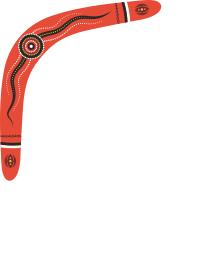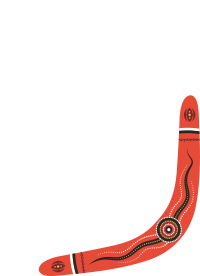Care1 is a leading provider of highly trained and professional disability services care staff and nurses, as well as aged care staff to private clients throughout Sydney, NSW, Brisbane, Queensland and Canberra, ACT.
FAQs
Navigating the world of care brings up so many questions. Here we’ve attempted to answer a few. If you cannot find the answer below to a question you have, please contact us and we’d be happy to help.

What services does Care1 offer?
We tailor our services to meet the unique needs of every client. We take the time to understand each individual's challenges and how we can best deliver the rich life experiences everyone deserves.
Our services and availability of carers is always expanding, and we currently have expertly trained carers in the following specialties:
- Acquired Brain Injury (ABI)
- Aged care
- Community participation and access
- Disability support
- Dementia care
- Palliative care
- Respite care (in home and community)
- Specialised & complex care
- Behaviour support
- Therapy support
- Other care options, such as personal care, domestic assistance, home nursing and child care services..
We can also provide in-home care and support for a number of other complex needs, and would be happy to discuss your individual needs - simply contact us for an obligation free discussion. These specialist areas include, but are not limited to:
- Stable neurological conditions, such as cerebral palsy
- Unpredictable and intermittent conditions, such as epilepsy
- Sudden on-set conditions, such as a brain injury or stroke
- Respiratory conditions
- Cardiac conditions
- Progressive conditions, such as motor neurone disease, muscular dystrophy, Huntington’s, or multiple sclerosis
- Sensory loss or special communication needs
- Respite, convalescence, or post-operative needs
How is Care1 different from other providers?
Care1 is wholly-Australian owned, and run by industry-trained professionals who understand and are dedicated to listening to clients and meeting their needs. We are committed to ensuring the highest levels of client satisfaction, and we provide care staff who are carefully matched to the support requirements of our clients and their families. Our clients also have the satisfaction of knowing that Care1 meets the highest standards of care having Quality Assurance that complies with the relevant industry standards for best practice.
What is the NDIS?
The NDIS (National Disability Insurance Scheme) is the federal organisation that offers support to Australians with a disability. It is the role of the NDIS to provide funding to all Australians who have a permanent and significant disability under the age of 65 years old.
As well as funding, the NDIS provides support by being a hub of information that helps connect people living with a disability to the services available within their communities.
Financial support is available through the NDIS. Read more at our NDIS section.
What is icare?
The icare lifetime care scheme pays for treatment, rehabilitation and community support services to people who have been severely injured in a motor accident in NSW, regardless of who was at fault in the accident. The NSW Government Scheme, which is funded by a levy on green slips (compulsory third party insurance) has been running since 1 October 2006 for children under 16 and 1 October 2007 for adults.
A participant is eligible for the scheme if they present with the following injuries: spinal cord injury, traumatic brain injury, amputations, severe burns or are permanently blind as a result of the accident.
Please contact us for further information.
What is Attendant Care?
Refers to any paid care and support services delivered to a client’s living in the community. Attendant care enables clients to remain living at home, and live independently. People that may need attendant care include people with a disability, recovering from injury, and frail elderly folks. Attendant care may include, nursing care and assistance with all the activities of daily living including personal care, domestic services, community access, vocational support, educational support, child care services, gardening/home maintenance, respite care, palliative care, social support and therapy program support.
Do You Conduct Criminal Record and Children Checks on all staff?
Yes, Care1 provides comprehensive checks including Criminal Record and Working with Children Checks on all care workers prior to delivering services to our clients.
What is the difference between home health care services and personal home care services?
The difference is that home health is skilled clinical care directed by a doctor or other health care provider. Personal home care on the other hand is assistance involving non-clinical services, like home help, transportation, and other personal assistance.
How easy is it to receive care from Care1?
It is easy to engage our services. We have services across NSW, ACT and QLD. View our full list of locations, call 1300 422 731, or contact us via the form below to see what services we offer in your area. In addition, financial support is available through the NDIS. To find out what you need to do to apply, visit our NDIS section.
Are there any age restrictions on receiving care & support from Care1?
Care1 provides a large range of tailored support and care services specific to people of all ages, from children through to the elderly. Our care services vary depending on the nature and severity of the injury, but we can support any individual in the community with the care they need.
Are care & support options from Care1 expensive?
Care1 can provide cost effective fee-for-service options to clients who are not funded under the NDIS or other care and support models.
What does the term Acquired Brain Injury actually mean?
The key word here is ‘Acquired’. Meaning a brain injury that has occurred as a result of an accident, illness or traumatic event. This injury then has an impact on the function of that area of the cerebrum, such as motor function, memory or speech.
Is it possible to be born with an ABI?
No it is not. While there are cases of children born with brain damage, those incidents are more commonly known as prenatal, perinatal or congenital injuries. The acquired injury here happens after birth.
How do the majority of ABI incidents occur?
Acquired Brain Injuries can occur following a variety of traumatic accidents and incidents where the brain is damaged. This can happen through physical impact or a loss of oxygen. Injuries can come from assault, falls, sporting accidents and traffic collisions. In fact, over 70% of these injuries are the result of road accidents. Other causes include strokes, asphyxiation and tumours.

